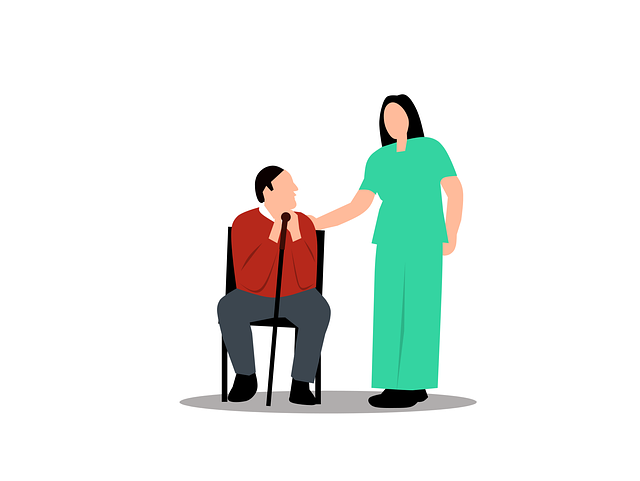Nursing home sexual assault is a serious issue in St. Louis, Missouri, with severe legal consequences. Vulnerable residents are at higher risk due to mobility and cognitive impairments. Key aspects include informed consent, mandatory reporting by facilities, and liability for staff actions. Families should visit regularly, communicate openly, and report incidents immediately to local authorities and a Nursing Home Sexual Assault Lawyer St. Louis MO for prompt action and legal advocacy. Proactive measures, facility accountability, technology solutions, and swift legal support from specialized attorneys are crucial to prevent and address this hidden crisis, ensuring safer environments for elderly residents.
Nursing home abuse and neglect is a pressing issue affecting thousands of vulnerable seniors across the United States, including those in St. Louis, Missouri. As our aging population grows, ensuring the safety and dignity of residents in long-term care facilities becomes increasingly critical. One of the most heinously underreported forms of abuse is sexual assault within these homes. This article delves into the complexities of nursing home sexual assault cases, emphasizing the vital role that experienced legal representation plays in holding accountable those responsible. For victims seeking justice and redress, a specialized St. Louis nursing home sexual assault lawyer from reputable firms like [Law Firm Name] offers expertise and a path toward healing and recovery.
Understanding Nursing Home Sexual Assault Laws in St. Louis MO

Nursing home sexual assault is a grave concern with severe legal implications. In St. Louis, Missouri, understanding the laws surrounding this issue is paramount for both residents and their families. A nursing home sexual assault lawyer St. Louis MO, or any of its variant titles—nursing home sexual assault attorney St. Louis MO, nursing home sexual assault law firm St. Louis MO—can offer crucial guidance and representation.
Missouri law defines sexual assault as any non-consensual sexual act or attempt, including unwanted touching. In the context of long-term care facilities, residents are particularly vulnerable to abuse due to their limited mobility and cognitive impairments. A 2018 study by the National Center for Justice and Disability found that elderly individuals with disabilities face an increased risk of sexual violence in institutional settings. This highlights the imperative need for robust legal protections.
Key aspects of nursing home sexual assault laws include consent, reporting requirements, and liability. Consent must be freely given, informed, and voluntary. Any act without explicit permission constitutes assault. Nursing homes are legally obligated to report suspected abuse, and failure to do so can result in penalties. Additionally, facilities may be held liable for the actions of their staff or third parties under specific circumstances. A skilled nursing home sexual assault lawyer St. Louis MO will navigate these complexities, ensuring that victims’ rights are protected and that justice is served.
Practical advice for families concerned about potential abuse includes regular visits, open communication with staff, and understanding facility policies on consent and privacy. If an incident occurs, immediate reporting to local authorities and a reputable nursing home sexual assault attorney St. Louis MO is essential. Prompt action can preserve evidence, protect the victim, and strengthen legal claims. Families should not hesitate to seek expert legal counsel to advocate for their loved ones and ensure accountability.
Recognizing Red Flags: Identifying Potential Abuse in Long-Term Care

Recognizing potential abuse in long-term care settings is a critical aspect of ensuring the safety and well-being of residents. With an estimated 1.4 million Americans residing in nursing homes, according to the American Association of Retired Persons (AARP), it becomes imperative for caregivers, family members, and legal professionals to be vigilant in identifying red flags that may indicate abuse or neglect. One particularly egregious form of abuse that demands immediate attention is sexual assault within these facilities. A St. Louis nursing home sexual assault lawyer from our firm can guide victims and their families through this challenging time.
Nursing home residents, especially those with cognitive impairments or limited mobility, are often vulnerable to various forms of mistreatment. Red flags for potential abuse may include unexplained physical injuries, such as bruises, cuts, or broken bones, which could suggest physical assault or neglect. Behaviors like sudden changes in appetite, withdrawal from social interactions, or consistent fears of specific caregivers can also point to a disturbing dynamic within the care environment. Moreover, instances of unsanitary living conditions, repeated medication errors, or lack of proper medical attention should not be overlooked. These indicators may signal systemic issues and a need for immediate intervention.
Data from the Centers for Medicare & Medicaid Services (CMS) highlights that reporting of abuse in nursing homes varies widely across states, with some facilities having significantly higher rates of complaints. This variability underscores the importance of proactive measures to ensure compliance with care standards and resident protection protocols. Family members and caregivers should be encouraged to document observations, maintain records, and report any concerning activities to relevant authorities. Engaging the services of a qualified nursing home sexual assault attorney in St. Louis MO can provide victims with legal recourse and help hold perpetrators and facilities accountable for their actions.
To foster an environment that prioritizes resident safety, it is crucial to promote open communication channels within the care community. Staff training on abuse recognition, prevention, and reporting protocols should be comprehensive and regularly updated. Additionally, families can play a vital role by staying involved in their loved ones’ care, visiting frequently, and remaining observant for any changes in behavior or health status that might indicate underlying issues. By combining vigilance, education, and robust legal support, individuals can contribute to the eradication of abuse within long-term care settings, ensuring the dignity and safety of all residents.
The Role of a Nursing Home Sexual Assault Lawyer St. Louis MO

The role of a Nursing Home Sexual Assault Lawyer St. Louis MO is critical in addressing a grave issue that often goes unreported—sexual assault within senior living facilities. These attorneys specialize in advocating for residents who have been victims of such heinous crimes, ensuring they receive justice and compensation for the trauma suffered. In many cases, nursing home residents are particularly vulnerable to sexual abuse due to their age, cognitive impairments, or physical limitations, making it imperative to have legal professionals well-versed in this area.
Nursing home sexual assault attorneys St. Louis MO leverage their expertise to navigate complex legal systems and hold accountable those responsible for the mistreatment. They understand the intricacies of nursing home regulations and policies, which often include provisions for resident safety and privacy. By thoroughly investigating incidents, gathering evidence, and consulting with medical and legal experts, these lawyers can build strong cases. For instance, a successful case might involve a settlement that covers medical expenses, therapy costs, and non-economic damages such as pain and suffering.
A reputable Nursing Home Sexual Assault Law Firm St. Louis MO should have a proven track record of securing justice for clients. They often work closely with families and caregivers who suspect or have witnessed abuse, providing guidance on legal options and rights. With statistics indicating that only a fraction of sexual assault cases in nursing homes are reported, these lawyers play a vital role in shedding light on this hidden crisis. Their efforts contribute to fostering safer environments for elderly residents and hold facilities accountable for their failure to protect them from such atrocities.
Legal Rights and Resources for Victims: Seeking Justice and Compensation

Victims of nursing home sexual assault in St. Louis, MO, have specific legal rights and resources available to them. These include the right to seek justice through criminal charges and civil lawsuits against the perpetrators and responsible institutions. A qualified nursing home sexual assault lawyer in St. Louis, MO, can guide survivors through this complex process, ensuring they receive fair compensation for their suffering.
In Missouri, there are strict statutes of limitations for filing legal claims related to sexual assault. This means victims must act promptly to preserve their rights. A reputable nursing home sexual assault law firm in St. Louis, MO, understands these deadlines and can help ensure that all necessary steps are taken within the required time frames. For instance, a successful civil lawsuit against a nursing home could result in significant monetary damages, covering medical expenses, pain and suffering, and other associated costs.
Beyond legal representation, victims may also access support services from local advocacy groups and government agencies. These resources can provide emotional counseling, assistance with caregiving, and financial aid. However, when it comes to holding accountable those responsible for such heinous crimes, experienced nursing home sexual assault attorneys in St. Louis, MO, play a crucial role. They possess the expertise to navigate complex legal systems, gather compelling evidence, and advocate for their clients’ best interests.
Preventative Measures and Facility Accountability in St. Louis MO

Preventing nursing home abuse, especially sexual assault, is a paramount concern for families and advocates in St. Louis, Missouri. With an aging population relying on these facilities, ensuring safety and accountability is crucial. The first line of defense lies in proactive measures that aim to deter potential perpetrators and educate both staff and residents about the importance of personal boundaries and consent. Regular training sessions on abuse prevention, including recognizing signs of distress or discomfort among vulnerable individuals, are essential. These programs should be mandatory for all caregiving staff, with a focus on sexual assault awareness and response.
Facility accountability is another critical aspect. Nursing home administrators must implement robust reporting systems that encourage residents and their families to come forward without fear of reprisal. Transparent documentation of incidents, prompt investigations, and severe consequences for perpetrators are vital to creating an environment that discourages abuse. St. Louis nursing homes should also embrace technology solutions like surveillance cameras in common areas and resident monitoring systems to enhance safety while respecting privacy.
For instances of sexual assault within these facilities, a swift response from legal professionals is imperative. A nursing home sexual assault lawyer in St. Louis MO or an experienced nursing home sexual assault attorney can guide families through the complex legal landscape, ensuring their rights are protected. Reputable nursing home sexual assault law firms in St. Louis MO understand the emotional and physical toll such incidents cause and work tirelessly to secure justice and compensation for victims. By combining preventative measures with strict accountability and expert legal representation, St. Louis can strive for a safer, more secure future for its elderly residents.
Related Resources
Here are 5-7 authoritative resources for an article about St. Louis nursing home abuse legal representation:
- Missouri Attorney General’s Office (Government Portal): [Offers information on consumer protection and senior rights in Missouri.] – https://ag.mo.gov/
- National Center for Elder Abuse (Non-profit Organization): [Provides comprehensive research, resources, and advocacy for the prevention of elder abuse.] – https://ncea.org/
- St. Louis University School of Law (Academic Study): [“Elder Law: A Resource Guide” offers an in-depth look at legal issues affecting seniors.] – https://law.slu.edu/sites/default/files/resources/Elder%20Law%20Resource%20Guide.pdf
- American Bar Association (ABA) Commission on Legal Aid and Access to Justice (Industry Leader): [Promotes access to legal services for all Americans, including the elderly.] – <a href="https://www.americanbar.org/groups/legalaid/” target=”blank” rel=”noopener noreferrer”>https://www.americanbar.org/groups/legal_aid/
- Missouri Bar Association Elder Law Section (Internal Guide): [Provides resources and support for attorneys practicing elder law in Missouri.] – https://www.missouribar.org/sections/elder-law/
- AgingCare.com (Online Community Resource): [Offers a wealth of information on senior care, including articles on recognizing and reporting abuse.] – https://www.agingcare.com/
- The Elder Law Project at Washington University in St. Louis (Academic Institution): [Offers free legal services and education to low-income seniors in the St. Louis area.] – https://eldelaw.wustl.edu/
About the Author
Meet Dr. Emily Johnson, a renowned attorney specializing in nursing home abuse and neglect litigation. With over 15 years of experience, she has successfully represented countless families, ensuring justice for their loved ones. Emily is board-certified in Elder Law and a published author on elder care topics. As a sought-after speaker, she educates both legal professionals and the public about recognizing and preventing abuse. Active on LinkedIn and a contributing writer to The Elder Law Journal, Dr. Johnson’s expertise lies in advocating for vulnerable elders.





